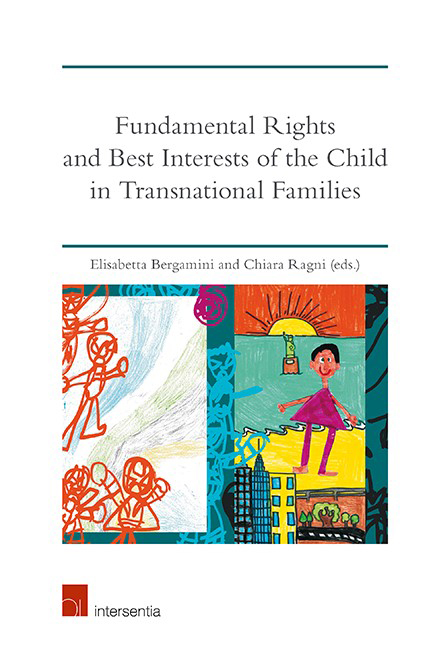Book contents
- Frontmatter
- Dedication
- Preface
- Acknowledgements
- Contents
- List of Cases
- List of Authors
- PART I THE IMPACT OF HUMAN RIGHTS AND OF THE BEST INTERESTS OF THE CHILD ON EU FREE MOVEMENT AND MIGRATION LAW
- Human Rights of Children in the EU Context: Impact on National Family Law
- Protecting EU Citizen Minors' Right to Identity in the Transnational Family Context
- The Best Interests Principle's Impact on Decisions Concerning Asylum-Seeking and Refugee Children
- Human Rights and the Best Interests of the Child in European Family Reunification Law
- Rainbow Families and EU Free Movement Law
- Kafala and Family Reunification of Third-Country Nationals
- Against a Girl's Will: Child Marriages, Immigration and the Directive on Family Reunification
- PART II THE BEST INTERESTS OF THE CHILD AS A CONCERN OF HUMAN RIGHTS AND EUROPEAN PRIVATE INTERNATIONAL LAW
- Index
- About the Editors
Kafala and Family Reunification of Third-Country Nationals
from PART I - THE IMPACT OF HUMAN RIGHTS AND OF THE BEST INTERESTS OF THE CHILD ON EU FREE MOVEMENT AND MIGRATION LAW
Published online by Cambridge University Press: 12 November 2019
- Frontmatter
- Dedication
- Preface
- Acknowledgements
- Contents
- List of Cases
- List of Authors
- PART I THE IMPACT OF HUMAN RIGHTS AND OF THE BEST INTERESTS OF THE CHILD ON EU FREE MOVEMENT AND MIGRATION LAW
- Human Rights of Children in the EU Context: Impact on National Family Law
- Protecting EU Citizen Minors' Right to Identity in the Transnational Family Context
- The Best Interests Principle's Impact on Decisions Concerning Asylum-Seeking and Refugee Children
- Human Rights and the Best Interests of the Child in European Family Reunification Law
- Rainbow Families and EU Free Movement Law
- Kafala and Family Reunification of Third-Country Nationals
- Against a Girl's Will: Child Marriages, Immigration and the Directive on Family Reunification
- PART II THE BEST INTERESTS OF THE CHILD AS A CONCERN OF HUMAN RIGHTS AND EUROPEAN PRIVATE INTERNATIONAL LAW
- Index
- About the Editors
Summary
INTRODUCTION
Kafala is an institution for children's protection. It is mentioned in the 1996 Hague Convention on Jurisdiction, Applicable Law, Recognition, Enforcement and Cooperation in Respect of Parental Responsibility and Measures for the Protection of Children (1996 Hague Convention), drawn up within the Hague Conference on Private International Law. All European Union (EU) Member States are bound by the Convention, which they have also ratified in the interest of the EU.
The Convention concerns a matter that falls within the EU's competence, which the EU has exercised through the adoption of regulations on jurisdiction and the recognition and enforcement of judgements in matters of parental responsibility, including measures for children's protection, although kafala is not mentioned. Clearly, the Union can conclude international agreements on matters for which the Treaties have conferred internal competence. But it could not conclude the 1996 Hague Convention because only States could become parties to it. Nonetheless, the Convention's ratification was desirable, and States were authorised to ratify it and make a declaration to coordinate the Convention's respective scope and regulation. The Union cannot, therefore, be considered to be formally bound by the Convention, but States are obliged to respect it on the basis of international law and EU law (in this case, only between Member States themselves and between Member States and the Union). For States to fulfil their obligations, including those that do not fall within its competence, is in the Union's interest.
The 1996 Hague Convention requires contracting parties to recognise the effects of child protection measures adopted by another contracting party. However, nothing is mentioned about granting an entry and residence permit to a child, respecting the traditional margin of appreciation afforded to States in admitting foreign nationals. However, for recognition to take effect, it is oft en necessary for the child to move from his or her State of origin where the kafala was established, to another State where the adult or adults with whom the child is placed live or intend to live. In the EU, admission of foreign nationals is a matter over which institutions have shared competence.
- Type
- Chapter
- Information
- Publisher: IntersentiaPrint publication year: 2019



